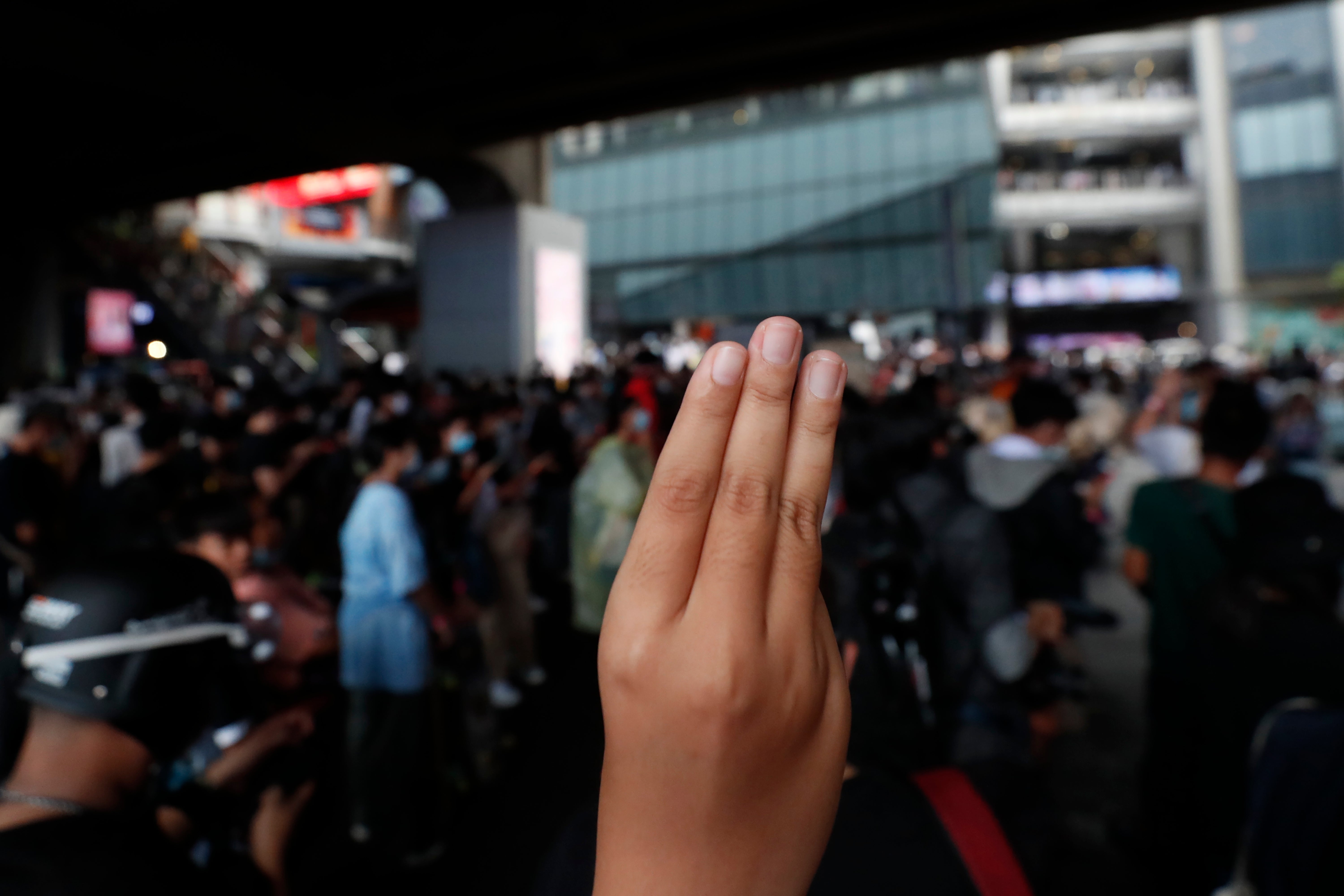Thailand protesters face draconian charges of insulting the monarchy
Human rights groups have urged Thailand to not charge protesters

Thailand’s authorities are facing severe criticism for charging pro-democracy leaders who criticised King Maha Vajiralongkorn during protests in September and October, even as activists started gathering in Bangkok on Wednesday for another major rally.
At least 15 protest leaders have been summoned on lese majeste charges (laws related to insulting the monarchy) over their comments regarding the king's behaviour, lifestyle and spending.
The pro-democracy protesters who have been summoned by police include the high-profile human rights lawyer Anon Nampa, as well as Parit Chiwarak, Panupong Chadnok, Tattep Runagprapaikitseree, Piyarat Chongthep, Juthathip Sirikan, and Pasarawalee Thanakitwibulpol, among others.
Human rights groups and activists have urged the authorities to refrain from prosecuting the protest leaders under the lese majeste charges, which come with strict punishments.
“After failing to deter peaceful pro-democracy demonstrations with unnecessary and disproportionate use of force, the Thai government is now using lese majeste to silence protesters. The international community must urge the Thai government to handle the ongoing protests through dialogue and within the framework provided by international human rights standards,” said Adilur Rahman Khan, who is the secretary-general of the International Federation for Human Rights.
Human rights lawyer Amal Clooney, in a statement from the Clooney Foundation for Justice, said that “no one should be arrested or imprisoned merely for criticising public officials or a system of government."
But government spokeswoman Rachada Dhnadirek said the Thai government has been “open-minded to rights and freedoms despite many imprudent expressions which offend the majority”, adding that the government was entitled to use “its authorised powers.”
On Wednesday, the protesters are scheduled to gather at the headquarters of Siam Commercial Bank to ask the king to give up the control he assumed of the palace fortune, which runs into the tens of billions of dollars. The king has a stake of more than 23 per cent in the bank, which makes him the largest shareholder.
Thai police have also been preparing to manage the protesters with thousands of policemen blocking roads with shipping containers and razor wire.
The Thai government’s decision to take action against protesters under the law that bans criticism of the monarchy is a clear change in the stance of the authorities as no legal action has been taken under the lese majeste charges for over three years – since July 2017.
It follows a statement from Thailand’s prime minister a few days ago who said that the government has been trying to find a peaceful solution to protests but tensions have not abated. He had warned that if the trend continued it would damage the country and risk public safety.
Despite the risk of Covid-19, for a major part of 2020 student-led protests have continued in Bangkok demanding a new constitution, the resignation of the military-backed prime minister and former general Prayut Chan-o-cha, and a reduction in the powers of the monarchy.
In October, the government had imposed a state of emergency, which was later lifted.
Additional reporting by agencies



Join our commenting forum
Join thought-provoking conversations, follow other Independent readers and see their replies
Comments